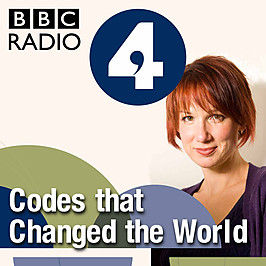| Codes That Changed The World |
| Written by Harry Fairhead | |||
| Saturday, 11 April 2015 | |||
|
BBC Radio 4 has a short series on important programming languages that are currently available to download. Can you present the ideas and history of computing languages to a general audience?
BBC Radio 4 is well respected as a news and fact based broadcaster, but all of the media has a problem when it comes to reporting science so it is possible to explain to a radio audience anything at all about the classic languages? The first language covered is Fortran, which really does deserve to be called the first programming language. In the radio program we get the flavor of the effect Fortran had on programming and some recollections of the time when it suddenly made numeric programming possible for the non-expert. You could say that the introduction of Fortran was similar to the introduction of the spreadsheet. Ah those were the days when instructions were entered on punch cards one per card and yet this sort of thing isn't really about the language - they all used punch cards or paper tape. All the way though the series there is a basic confusion between the technology of the time - punch cards, batch processing, line printer output, and so on. Apart from noting that its name stands for FORmula TRANslation the achievement that made Fortran special, isn't discussed. The key feature of the language, worked out and implemented by John Backus was a scheme for translating arbitrary mathematical expressions into machine runnable programs. Being able to use mathematical expressions in a computer language was the real breakthrough. Cobol - the subject of the second program wasn't so blessed. Its inventor didn't solve the problem of formula translation and so the language had to do math using statements like ADD 1 TO TOTAL rather then TOTAL=TOTAL+1. Later Cobol got formula translation and it wasn't quite as wordy as it first was. Cobol may have had the goal of making programming more like English, but it also neatly avoided the problem of formula translation. The episode concentrates on Cobol being wordy and not dying out and, of course, Grace Hopper. From Cobol we jump to Basic, and this is the one most programmers working to day will have encountered. This episode is really about the microcomputer revolution and how Basic proved to be a good choice for limited hardware and its limited programmers. Lots of reminiscences about the history of the BBC Micro and similar - not really much on the language itself. Eventually the program picks up on the fact that Basic was an unstructured language, i.e. the goto considered harmful problem. This wasn't really anything particularly targeted at Basic, however. At the end we have an in praise of home computing and the Raspberry Pi. The fourth and final language is Java. This is the most complex of the language stories. We know that Java is first successful structured, object-oriented, language based on a virtual machine that makes it possible to run on almost any hardware. The story that Java became important because of its ability to be embedded in a web page - something that is no longer a popular way to do things - is well told. Also its translation to the server is captured. However the program swallows the propaganda that Java is the language of the future IoT and presents it as fact. Finally we have a round up episode - The Tower Of Babel. This puts forward the view that we need a Babel of languages to cope with the different tasks that we need to tackle. There is a big propaganda section on functional programming and an emphasis on Haskell as the language for geniuses and a final plea for everyone to learn a language. Why no mention of object-oriented programming, logic programming or any of the other alternative paradigms? Too difficult, perhaps. But the change to structured modular programming and then to full object-oriented programming is perhaps the big story of languages and it is completely ignored. The central issues of what a computer language is all about and how the development of different approaches influenced the way programmers think wasn't even hinted at.
It is very difficult to know who these radio programs are targeting. Certainly not programmers, but I can't see that any useful information was passed to the non-specialist. This is such a shame because there really is an exciting story of amazing ideas that can be told. I think the best part of the programs is the background of songs based on reading a program from the language being discussed - it could catch on in a big way. More Informationhttp://www.bbc.co.uk/podcasts/series/r4codes The series is only available for 30 days. Related ArticlesJohn Backus - the Father of Fortran History of Computer Languages - the classical decade, 1950s Grace Hopper - The Mother of Cobol Kemeny & Kurtz - The Invention Of BASIC Edsger Dijkstra - The Poetry Of Programming Computer Languages by Committee - the 1960s The Rise Of People Power - Computer languages in the 70's Towards Objects and Functions - Computer Languages In The 1980s
To be informed about new articles on I Programmer, install the I Programmer Toolbar, subscribe to the RSS feed, follow us on, Twitter, Facebook, Google+ or Linkedin, or sign up for our weekly newsletter.
Comments
or email your comment to: comments@i-programmer.info |
|||
| Last Updated ( Saturday, 11 April 2015 ) |


